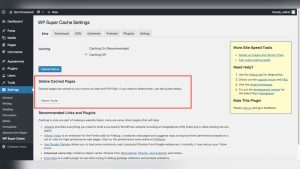Are you looking to schedule a pre-sales solution consultant but don’t know where to start? Getting the timing and approach right can make all the difference in how smoothly your sales process runs.
Whether you want to clarify your product’s value, address client concerns early, or tailor your pitch perfectly, knowing how to schedule your consultant is key. You’ll discover simple, effective steps to book the right expert at the right time—helping you boost your chances of winning more deals.
Keep reading, and you’ll learn how to make this critical part of your sales strategy work effortlessly for you.
Role Of Pre-sales Solution Consultant
The role of a Pre-Sales Solution Consultant is vital in bridging the gap between customers and the sales team. They provide expert knowledge about products and solutions before a sale is made. This helps customers understand how a product meets their needs. Pre-Sales Solution Consultants support sales by answering technical questions and offering tailored advice. They work closely with both sales and technical teams to ensure a smooth sales process.
Core Responsibilities
Pre-Sales Solution Consultants analyze customer needs and challenges. They prepare and deliver product demonstrations and presentations. They create customized solutions based on client requirements. Handling technical questions and objections is part of their daily tasks. They collaborate with sales teams to develop effective strategies. Documentation and feedback collection also fall under their duties. Their goal is to ensure customers see the value of the solution.
Skills Required
Strong communication skills are essential to explain complex ideas simply. Technical knowledge of products and industry is a must. Problem-solving skills help in designing suitable solutions. Active listening allows understanding of customer pain points. Presentation skills boost confidence in product demonstrations. Collaboration skills enable teamwork with sales and engineering teams. Time management helps in balancing multiple client engagements efficiently.
Impact On Sales Process
Pre-Sales Solution Consultants increase the chances of closing deals. They reduce the sales cycle by clarifying customer doubts early. Their insights help tailor solutions that fit customer needs precisely. They build trust by showing deep product understanding. Their input improves proposal quality and relevance. Supporting sales teams, they create a stronger value proposition. This role leads to higher customer satisfaction and better sales results.

Credit: jobs.paloaltonetworks.com
Scheduling Basics
Scheduling a pre-sales solution consultant is crucial for smooth project flow and client satisfaction. Clear planning helps avoid delays and confusion. It sets expectations for all involved parties. Understanding the basics of scheduling makes the process easier and more effective.
Key Stakeholders
Identify who needs to join the session early. Stakeholders often include sales teams, technical experts, and clients. Each plays a vital role in the meeting’s success. Coordinating their availability saves time and effort. Communicate clearly with everyone to confirm dates and times.
Ideal Timing
Choose a time that suits all parties as much as possible. Avoid busy periods like month-end or holidays. Schedule meetings during regular business hours for convenience. Allow enough time for preparation and follow-up tasks. Early planning reduces last-minute conflicts and cancellations.
Common Challenges
Conflicting schedules often cause delays in setting appointments. Time zone differences add complexity for remote teams. Lack of clear communication can lead to misunderstandings. Technical issues during virtual meetings disrupt progress. Address these challenges by setting clear guidelines and using reliable tools.
Tools For Scheduling
Scheduling a Pre-Sales Solution Consultant requires careful organization. Using the right tools can simplify this task. These tools help manage time, improve communication, and reduce errors. They make scheduling fast and clear for all parties.
Calendar Management Software
Calendar management software is essential for scheduling. It allows you to view and book available times easily. Popular options include Google Calendar and Microsoft Outlook. These tools send reminders and prevent double bookings. Sharing calendars helps teams stay aligned and informed.
Communication Platforms
Communication platforms support direct contact with consultants. Tools like Slack, Microsoft Teams, and Zoom offer chat and video options. They enable quick updates and confirmations. Clear communication reduces misunderstandings and speeds up scheduling decisions.
Automation Tools
Automation tools streamline the scheduling process. Software like Calendly or Doodle lets consultants set their availability. Clients can pick suitable times without back-and-forth emails. Automation saves time and lowers the chance of errors.

Credit: www.presalescollective.com
Preparing For Scheduling
Preparing to schedule a Pre-Sales Solution Consultant requires careful planning and coordination. This phase sets the foundation for a smooth and productive engagement. Proper preparation ensures the consultant’s time aligns with client needs and internal goals.
Focus on gathering all necessary information and aligning team calendars. Prioritize tasks to handle the most critical issues first. This organized approach helps avoid delays and confusion.
Gathering Requirements
Collect detailed information about the client’s needs and expectations. Understand the project scope and key objectives. Ask clear questions to identify technical and business requirements. This step helps tailor the consultant’s approach to the client’s situation.
Aligning Team Availability
Check the schedules of all involved parties, including sales, technical teams, and the consultant. Find overlapping free times for meetings and demos. Use shared calendars and scheduling tools to avoid conflicts. Clear communication about availability prevents last-minute cancellations.
Setting Priorities
Determine which tasks need immediate attention and which can wait. Focus on high-impact areas that affect decision-making. Prioritize client concerns and internal deadlines. This focus guides efficient use of the consultant’s time and resources.
Effective Scheduling Strategies
Effective scheduling strategies help Pre-Sales Solution Consultants manage their time well. Good scheduling improves productivity and reduces stress. It also ensures important meetings get enough focus. Using smart techniques can make daily work smoother and more organized.
Time Blocking Techniques
Time blocking means setting specific times for tasks or meetings. It helps avoid multitasking and distractions. Consultants can dedicate blocks to demos, research, or client calls. This method creates clear boundaries and keeps the day structured. It also makes it easier to track work progress.
Buffer Time Inclusion
Adding buffer time between meetings prevents back-to-back stress. It allows a few minutes to prepare for the next task. Buffer time helps handle unexpected delays or urgent follow-ups. This small gap improves focus and keeps the schedule flexible. It reduces the risk of running late.
Prioritizing High-value Meetings
Not all meetings are equally important. Prioritize those with high impact on sales or client relationships. Focus more time on strategic discussions and demos. Less critical tasks can be scheduled later or delegated. Prioritization ensures the consultant spends energy where it matters most.
Coordinating With Sales And Technical Teams
Coordinating with sales and technical teams ensures smooth scheduling of pre-sales solution consultants. It helps teams work together and avoid misunderstandings. Clear communication and shared goals are crucial for success.
Aligning Goals
Sales and technical teams must agree on the main objectives. Aligning goals helps focus on customer needs and product benefits. This creates a unified approach to pre-sales activities. Everyone works towards the same target.
Sharing Calendars
Sharing calendars improves visibility of each team’s schedule. It allows easy planning of meetings and demos. Teams can spot available times without back-and-forth emails. This saves time and prevents double bookings.
Managing Conflicts
Conflicts can arise when schedules overlap or priorities differ. Identifying conflicts early helps find quick solutions. Teams can reschedule or adjust workloads to keep progress steady. Open communication reduces tension and keeps projects on track.
Handling Rescheduling And Cancellations
Handling rescheduling and cancellations is a key part of managing appointments with a Pre-Sales Solution Consultant. Changes in schedules happen frequently due to client availability or urgent priorities. Managing these changes smoothly keeps the sales process on track and maintains a good client relationship.
Clear Communication
Notify clients about any schedule changes as soon as possible. Use simple, direct language to explain the reason for rescheduling or cancellation. Confirm new dates and times clearly to avoid confusion. Maintain a polite and professional tone to build trust. Prompt responses to client messages help prevent misunderstandings.
Flexible Alternatives
Offer several new time slots to accommodate the client’s needs. Suggest virtual meetings if in-person meetings are difficult to arrange. Be open to adjusting the meeting length or format for convenience. Show willingness to find a solution that works best for all parties. Flexibility increases the chances of keeping the client engaged.
Minimizing Disruptions
Reschedule quickly to reduce downtime in the sales process. Keep all stakeholders informed about the new schedule to maintain alignment. Use calendar tools that send automatic reminders to prevent missed meetings. Prepare backup plans to handle last-minute changes smoothly. Efficient rescheduling protects the momentum of ongoing deals.
Best Practices For Pre-sales Consultants
Best practices for pre-sales consultants help improve scheduling and client engagement. These guidelines make the process smooth and efficient. They also ensure consultants meet client needs on time. Following these practices boosts productivity and builds trust with clients.
Effective Communication Skills
Clear communication is key for pre-sales consultants. They must explain solutions simply and directly. Listening carefully to client questions helps tailor responses. Using simple words avoids confusion for non-native speakers. Consultants should confirm understanding by asking feedback. Regular updates keep clients informed about scheduling changes. Strong communication builds confidence and strengthens relationships.
Leveraging Data For Scheduling
Data helps optimize scheduling for pre-sales consultants. Tracking past meetings reveals best times to meet clients. Using calendars and scheduling tools reduces conflicts. Data on client preferences guides appointment setting. Analyzing workload balances tasks and avoids burnout. This approach saves time and improves client satisfaction. Scheduling based on data makes the process more predictable.
Continuous Improvement
Pre-sales consultants should always seek ways to improve. Reviewing completed meetings identifies what worked well. Gathering client feedback shows areas needing change. Updating skills keeps consultants prepared for new challenges. Small changes in scheduling can boost efficiency significantly. Learning from experience leads to better client service. Continuous improvement creates lasting success in pre-sales roles.
Measuring Scheduling Success
Measuring scheduling success is vital to ensure efficient use of a Pre-Sales Solution Consultant’s time. Tracking results helps identify what works and what needs improvement. It also supports better planning and resource allocation.
Regular evaluation keeps the scheduling process aligned with business goals. It improves client satisfaction and boosts overall team performance. Three main areas to focus on are key performance indicators, feedback collection, and adjusting scheduling approaches.
Key Performance Indicators
Key performance indicators (KPIs) provide clear data on scheduling effectiveness. Common KPIs include the number of scheduled meetings, meeting attendance rates, and lead conversion rates. Tracking average response time to meeting requests also matters.
These metrics highlight bottlenecks and areas that need attention. They guide decision-making and help prioritize tasks. Monitoring KPIs consistently ensures the scheduling process stays efficient and productive.
Feedback Collection
Feedback from consultants and clients offers valuable insights into the scheduling process. Simple surveys or quick interviews can gather opinions on meeting times and coordination. This input helps understand challenges and preferences.
Listening to feedback helps identify issues that data alone may miss. It fosters open communication and builds trust. Regular feedback collection encourages continuous improvement in scheduling methods.
Adjusting Scheduling Approaches
Adjusting scheduling approaches based on data and feedback is key to success. This may include changing time slots, using different tools, or revising communication methods. Flexibility allows adapting to changing needs and priorities.
Testing new strategies and measuring their impact ensures ongoing optimization. Small changes often lead to better alignment with consultant availability and client expectations. Continuous refinement improves scheduling efficiency and satisfaction.

Credit: amperity.com
Frequently Asked Questions
What Is A Presales Solution Consultant?
A presales solution consultant supports sales by demonstrating products, addressing client needs, and crafting tailored solutions. They bridge technical and business teams to boost customer acquisition.
How Much Do Pre-sales Consultants Make?
Pre-sales consultants earn between $84,500 and $106,000 annually. Average salary is around $94,728 per year. Earnings vary by experience and location.
What Is The Difference Between Pre Sales And Solution Consulting?
Pre-sales focuses on customer discovery, product demos, and handling objections. Solution consulting emphasizes business processes, ROI analysis, and strategic advice. Pre-sales drives initial engagement; solution consulting offers tailored, in-depth business solutions to meet client needs.
How To Be A Good Pre-sales Consultant?
Master product knowledge and communication skills. Understand client needs and tailor solutions clearly. Build trust through active listening and timely follow-up. Collaborate effectively with sales and technical teams. Stay updated on industry trends to provide strategic insights.
Conclusion
Scheduling a pre-sales solution consultant well helps your sales process run smoothly. Clear planning saves time and avoids confusion. Always communicate your needs early and confirm appointments. Use calendars and reminders to stay organized. This approach builds trust and improves customer experience.
Follow these simple steps to make scheduling easy and effective. Consistent effort leads to better collaboration and results. Keep your team informed and ready for each meeting. Good scheduling supports successful sales and satisfied clients.




